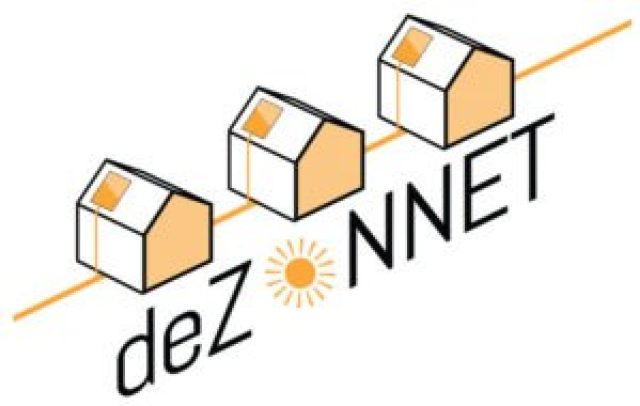New design for making residential areas gas-free generates carbon savings
A residential area in Haarlem dating from the 1930s is planning to test a new design with locally-generated solar heat, heat pumps, and an aquifer thermal energy system (ATES) in the subsurface. If the trial succeeds, this approach could be a good way of making older homes more sustainable and disconnecting them from the gas mains. The design saves a lot more carbon than other gas-free solutions.
Delft University of Technology, Greenvis and Deltares are working together to investigate the technical and economic feasibility of the 'DeZONNET' concept. The idea consists of a low-temperature heat network fed by solar heat from solar panels that generate both electricity and heat. Some of this heat is used directly and some is stored on a seasonal basis in one or more ATES systems, reducing the requirement for external energy input to a minimum. The design delivers the heat required while using little electricity from outside sources and without other heat sources. This not only results in a gas-free solution, it also leads directly to maximum carbon savings.
Applicable in existing residential areas
A unique aspect of the project is that existing technologies are combined to produce an area-based energy concept that makes maximum use of locally produced energy. The temperature of the locally produced heat is raised by a heat pump in each home to heat the home and deliver hot tap water. Each individual system is linked to a low-temperature heat network and an ATES for heat exchange and the seasonal storage of heat. This combination makes it possible to apply the DeZONNET concept in new and existing residential areas.
The parties involved are examining technical and economic feasibility, and also looking at social considerations, including which residents want to participate and subject to which conditions. Deltares is looking at whether the heat network can circulate heat quickly enough from the homes to the area level and vice-versa. In other words, whether it is possible to regulate the system in a stable way. 'We use our WANDA calculation model to simulate all the pipelines, the connections in the systems and the different temperatures at the home and area levels,' says Sam van der Zwan, an expert in pipeline hydraulics at Deltares. 'That allows us to play with all the components and see how we can regulate the system as well as possible.' In addition, Deltares is producing a design manual for the DeZONNET concept so that it can also be used in other residential areas.

The results will be published at the end of this year. The consortium for DeZONNET concept consists of: TU Delft faculty of Architecture, Deltares, DE Ramplaan Foundation and project SpaarGas, Greenvis, De WarmteTransitieMakers, ENGIE, Triple solar and Fortes Energy Systems. The project is being funded by the Netherlands Enterprise Agency (RVO) as part of the Energy Top Sector. It is part of the Haarlem Climate Agreement signed on 8 March 2019.

